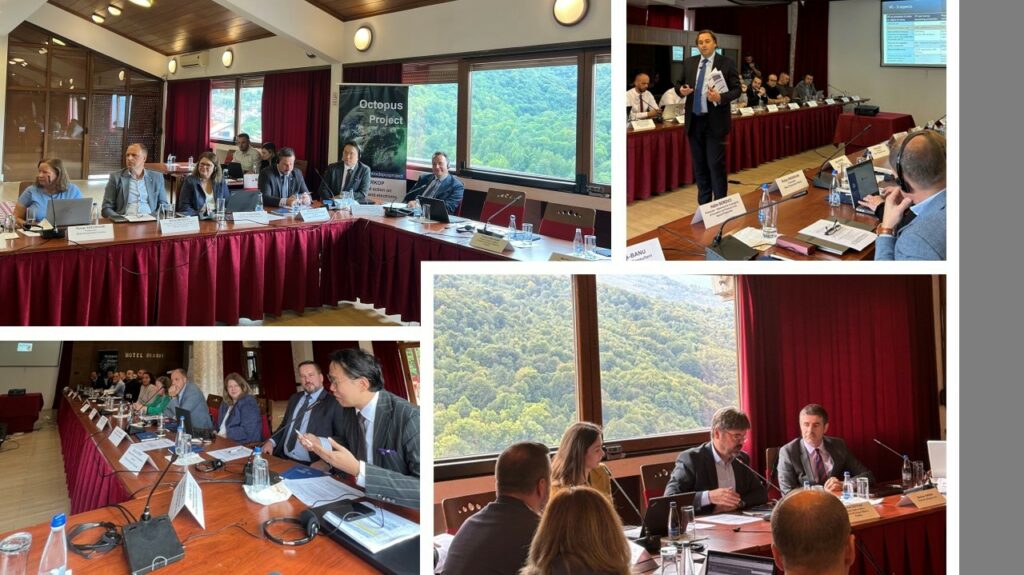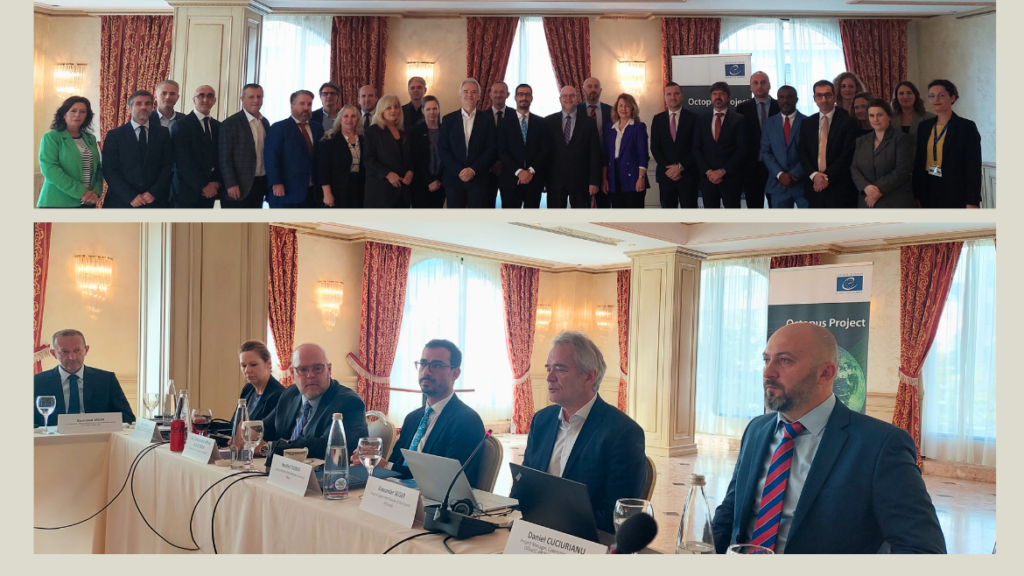Kosovo has partnered with the Council of Europe to host a pivotal three-day workshop aimed at strengthening its defenses against crypto-related cybercrimes. This collaboration marks an important step in equipping financial regulators and law enforcement officials with the necessary skills to combat the growing threat of cybercrime linked to digital assets.
The event is part of the Council of Europe’s Octopus Project, which focuses on implementing the Budapest Convention on Cybercrime and its protocols, aiming to provide comprehensive solutions to counter cybercrime in the region.

Key Workshop Focus Areas
The workshop, which began on September 24, 2024, and runs until September 26, 2024, is designed to train Kosovo’s Financial Intelligence Unit (FIU) on several critical aspects related to the investigation of illicit cryptocurrency activities. Among the key areas of focus are:
- Tracing and Confiscating Illicit Virtual Currency Transactions: Financial regulators and law enforcement officers will gain expertise in following blockchain transactions and identifying suspicious activities.
- Regulatory and Licensing Frameworks: Participants will explore the legislative and regulatory aspects of crypto markets, focusing on compliance with international standards, including those set by the Financial Action Task Force (FATF).
- Virtual Asset Service Providers (VASPs): The event aims to familiarize Kosovo’s financial bodies with the role of VASPs in the economy and how to regulate them effectively.
- Seizing Digital Assets: The workshop will teach practical methods for confiscating digital assets tied to criminal activities.
Strengthening Kosovo’s Cybercrime Response
The workshop brings together a range of stakeholders, including financial experts, law enforcement officers, prosecutors, and representatives from the Central Bank of Kosovo, aiming to foster collaboration across multiple agencies. This cross-agency approach will help Kosovo enhance its capabilities to respond to digital asset-related crimes.
By aligning itself with international guidelines such as those established by the Budapest Convention on Cybercrime, Kosovo seeks to bolster its regulatory framework while ensuring better coordination between different governmental bodies. The workshop also aims to integrate Kosovo into a broader international network that includes key players from the public and private sectors.
Octopus Project’s Role in Supporting Kosovo
The three-day event is part of the Council of Europe’s Octopus Project, a seven-year initiative running from 2021 to 2027. This project involves countries that are part of the Budapest Convention on Cybercrime and aims to tackle cybercrimes by providing tools and solutions to participating nations. For Kosovo, the Octopus Project will play a crucial role in strengthening its financial crime enforcement capacities, particularly in the area of virtual assets.
The project aims to support countries in tackling a wide array of cybercrime activities, including cryptocurrency-related crimes, by offering specialized training, hands-on workshops, and practical case studies. By working within the framework of the Budapest Convention, Kosovo will improve its capabilities in investigating and seizing digital assets tied to criminal activities.

Enhancing Compliance and Knowledge of Emerging Technologies
The workshop is divided into two segments:
- Legislative, Regulatory, and Licensing Aspects of Cryptocurrencies: In this phase, participants will learn about the legal frameworks necessary to regulate cryptocurrencies and ensure compliance with Kosovo’s laws. This includes understanding how the cryptocurrency market operates and how Virtual Asset Service Providers (VASPs) function within the economy.
- Operational and Investigative Skills: The second segment focuses on the operational side of crypto investigations, including techniques for tracing and seizing digital assets. Participants will gain practical experience through real-world case studies, enhancing their skills in managing criminal cases involving virtual currencies.
Aligning with International Standards
Through this workshop, Kosovo aims to align its practices with international standards set by the Financial Action Task Force (FATF), as well as the Council of Europe’s guidance on handling and seizing cryptocurrencies. The event’s ultimate goal is to equip Kosovo with the tools and knowledge necessary to investigate and prosecute virtual currency-related crimes effectively.
Conclusion
As cybercrimes targeting the cryptocurrency industry continue to rise, Kosovo’s partnership with the Council of Europe marks a significant step in bolstering its defenses. By participating in this three-day workshop, Kosovo’s financial regulators and law enforcement agencies will be better prepared to navigate the complexities of digital assets and ensure compliance with global standards. The event underscores the country’s commitment to combating cybercrime and protecting its financial ecosystem from emerging digital threats.








